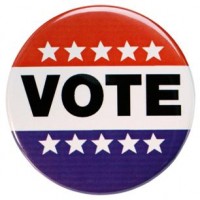Widgetized Section
Go to Admin » Appearance » Widgets » and move Gabfire Widget: Social into that MastheadOverlay zone
Voting Your Values and Legislating Morality
By David Schultz
 Should the law reflect the personal moral values of citizens? Should there be a religious right supporting discrimination against gays and lesbians, as New York Times columnist Ross Douthat contends? Should Arizona as well as other states allow voters to translate their personal moral values into public policy?
Should the law reflect the personal moral values of citizens? Should there be a religious right supporting discrimination against gays and lesbians, as New York Times columnist Ross Douthat contends? Should Arizona as well as other states allow voters to translate their personal moral values into public policy?
While values-based voting may be permissible, and individuals are free to hold any moral views they wish, the flaw in what Arizona did and what Douthat advocates lies in the mistaken belief that voting majorities are entitled to have their moral views enacted into law and imposed upon others. Such a stance is contrary to the basic principles of a democratic society that values tolerance and individual rights.
The United States is the product of two political foundings or traditions. The first is an older religious tradition dating back to our Puritan-Pilgrim founding. Such a view—seeing America as the last great hope to found John Winthrop’s “shining city on the hill”—depicts government as inseparable from religious-moral principles. Here, the government’s purpose is to improve the moral quality of the community and it citizens by enacting into law the moral preferences of the majority—at least so long as they reflect the word of God.
But a second founding owes its origins to the Spirit of 1776. It is a political tradition—referred to as liberalism—that traces back to the British political philosopher John Locke and to Thomas Jefferson and the Founding Fathers who signed the Declaration of Independence, the Constitution and the Bill of Rights. It is a secular view of society where government must respect individual moral choices, opting to be neutral regarding how its citizens define their vision of the good society and life for themselves.
A critical difference between the religious and liberal traditions lies in their rival views on morality and government. A religious tradition accepts as legitimate a majority using the government and the political process as a means of translating personal moral values into public policy that may be imposed upon others. Conversely, the liberal tradition rejects this practice as illegitimate. Be it James Madison stating that we must prevent a majority faction from using its power to threaten the public good or hurt the rights of others, or Alex DeTocqueville discussing the importance of restricting the tyranny of the majority, a hallmark value of a liberal society is that majority rule is tempered by minority rights.
While America is the product of two political foundings, the liberal tradition supplanted the religious one with the adoption of the Constitution and the Bill of Rights. The principles of a free society demand that the government remain neutral towards individual moral choices. Why? As John Stuart Mill and liberal philosophers argued, political neutrality regarding our personal moral choices respects individual rights. It also recognizes that the majority’s views may not be correct or that God may not be on their side, that it is no one’s business how I live my life (if I hurt no one else) or that simply a minority may view the world differently from others. If a majority can second-guess my moral choices on abortion, or whom I decide to marry, why not also legislate to make many other personal choices illegal, such as what books I choose to read, movies I wish to view or how I wish to make a living? At best, as John Rawls once said, the government may enforce a thin theory of the good—a vision respecting the equal right of all to choose a life for them—but it may not impose a thick theory of the good whereby the government decides what is the correct way to live a life.
Central to the concept of a liberal society is the idea of toleration. I may not personally have an abortion, decide to smoke, drink or gamble, but my personal views on these subjects should not dictate how others choose to conduct their lives. I have no right to have my moral preferences pre-empt the ability of others to live their lives. It is as Ronald Dworkin once said, a double counting of my preferences, giving me the right to express my views while at the same time negating the choices of others.
Of course, some will argue that limits on my religious ability to discriminate violate my rights. However, one can still believe what one wants; I just do not have the right to impose this thought or belief on others. To accept this logic of a religious right to discriminate would have meant that the entire civil rights movement of the 1960s would have been vetoed by the religious preferences of a few. No one seriously thinks that religion should be a carte blanch free pass to prevent racial and gender discrimination and the same should be true today with issues such as abortion and gay rights.
The error of the Arizona legislation lies in failing to understand the crucial difference between voting on conscience and expecting others to live by the choices I make for myself. Political toleration and the principles of a free society recognize that America is a morally and religiously diverse nation and that using government and the political process to impose a single moral vision upon all of us is illegitimate.


Follow Us!